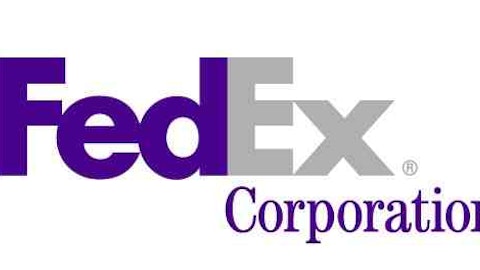The Boeing Company (NYSE:BA) has been a steady winner for decades. And despite recent safety issues related to lithium batteries on its 787 Dreamliner, Boeing’s stock has still risen 36.70% over the past year, eclipsing peers such as Lockheed Martin Corporation (NYSE:LMT) and
Boeing vs. Airbus
The Boeing Company (NYSE:BA)’s biggest competitor is Airbus. These two companies have been duking it out for years, and the rivalry will only intensify going forward. Boeing has the 787 Dreamliner, and Airbus has the A350 XWB. Both are attractive because of their fuel efficiency. However, the A350 XWB is 6% more fuel efficient than the 787 Dreamliner.
Airbus doesn’t want to immediately make the switch to lithium batteries, due to recent negative press and safety concerns. However, rumors suggest that the company does wants to make that switch in the future.
According to Boeing Commercial Airplanes CEO Ray Conner, The Boeing Company (NYSE:BA) accomplished three years of work in just three months after the lithium battery incidents, with no slowdown in other production efforts. This hungry attitude demonstrates what Boeing is capable of with its back against the wall.
Furthermore, The Boeing Company (NYSE:BA) has a counterpunch to Airbus with its 787-10X. This expanded Dreamliner will have more seats, letting carriers increase passengers — and profits — per flight. Singapore Airlines, British Airways, and Air Lease Corp have already expressed interest in the new model.
Cost also plays a role when it comes to demand. A 787 Dreamliner costs as little as $206 million, whereas a A350 XWB starts at $254 million. This is important considering the current economic environment. Potential buyers are likely looking to cut costs in every way possible.
All factors considered, this doesn’t come down to one company defeating the other. The truth is that both are well-run companies with bright futures. The biggest threat for these companies isn’t each other, but the weak global economy.
Boeing vs. Lockheed Martin and Northrop Grumman
Lockheed Martin Corporation (NYSE:LMT) and Northrop Grumman Corporation (NYSE:NOC) are going to be more affected by shrinking government budgets than The Boeing Company (NYSE:BA), because they get more of their money from defense contracts. Boeing has an enormous backlog for aircraft, much of which comes from China, and replacement demand in developed markets is high.
The chart below shows how close all three companies are when it comes to valuation and efficiency. However, one company falls short when it comes to dividend yield.
| Forward P/E | Profit Margin | Dividend Yield | |
|---|---|---|---|
| Boeing | 14.27 | 5.03% | 1.90% |
| Lockheed Martin | 12.03 | 6.04% | 4.30% |
| Northrop Grumman | 11.05 | 7.81% | 2.90% |
Based on these numbers, it would seem as though Boeing is the worst investment option of the three, but that’s not likely to be the case. Sometimes, short positions can also tell an important story.
For instance, the short position on The Boeing Company (NYSE:BA) is just 1.40%, whereas the short position on Lockheed Martin Corporation (NYSE:LMT) is 3.70%, and the short position on Northrop Grumman Corporation (NYSE:NOC) is 3.50%. Boeing likely owes its lower short interest to relatively lower dependence on government spending and high demand for commercial aircraft.
Conclusion
Boeing has grown revenue for two consecutive years. However, last quarter its revenue declined 2.5% year over year. If Boeing runs into top-line growth problems, it won’t hesitate to cut costs and return more capital to shareholders. This is potentially bad news for employees, but it’s good news for investors.
As stated above, Boeing has been a steady winner for decades, but it should be pointed out that Boeing isn’t resilient in bear markets. For example, Boeing dropped approximately 60% during the financial crisis of 2008/2009, whereas the S&P 500 dropped approximately 50%.
The good news is that Boeing is in a stronger position now than it was several years ago, and the stock has always eventually recouped losses and gone on to make new highs after a difficult stretch. Due to a slow-growth economy, turbulence is likely at some point over the next several years, but Boeing is a long-term winner.
Dan Moskowitz has no position in any stocks mentioned. The Motley Fool owns shares of Lockheed Martin and Northrop Grumman. Dan is a member of The Motley Fool Blog Network — entries represent the personal opinion of the blogger and are not formally edited.
The article Is Boeing More Attractive Than Its Peers? originally appeared on Fool.com is written by Dan Moskowitz.
Copyright © 1995 – 2013 The Motley Fool, LLC. All rights reserved. The Motley Fool has a disclosure policy.



